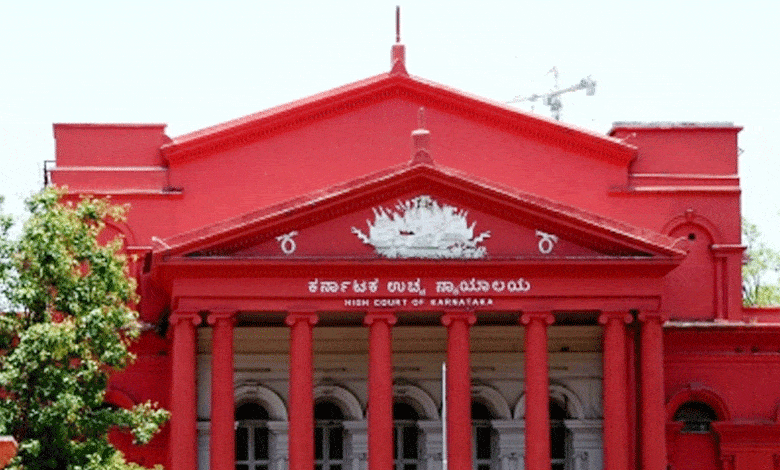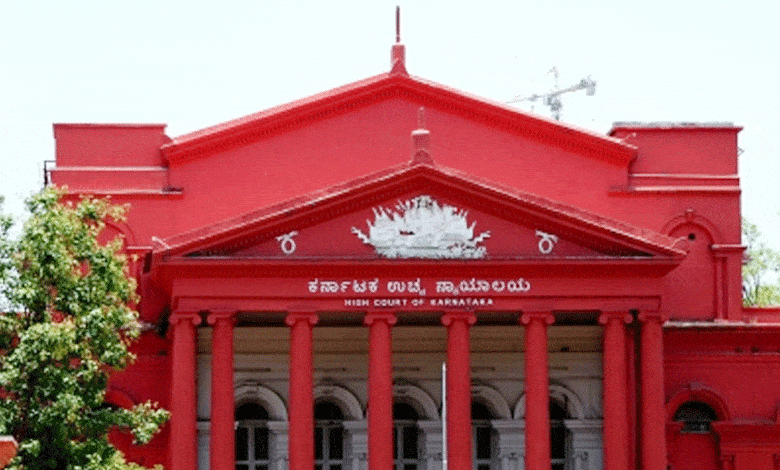Karnataka High Court Directs Registrar to Issue Revised Birth and Death Certificates
The Karnataka High Court directs the Registrar of Births and Deaths to issue revised certificates for transgender individuals who have undergone gender reassignment, ensuring both previous and updated names and genders are reflected.

Bengaluru: In a landmark decision, the Karnataka High Court has directed the Registrar of Births and Deaths to issue revised certificates for transgender individuals who have undergone gender reassignment surgery.
These updated certificates must reflect both the individual’s previous and revised names and genders. This ruling aims to address the legal recognition of transgender persons in official records until changes are made to the existing laws.
Table of Contents
The Court’s Ruling: Updating Official Documents for Transgender Persons
The Karnataka High Court’s directive comes in response to a petition filed by a 34-year-old transgender woman who had undergone gender reassignment surgery and sought to update her birth certificate to reflect her new name and gender. The Mangaluru City Corporation’s Registrar of Births and Deaths had previously denied her request, citing the lack of provisions in the Registration of Births and Deaths Act, 1969, which does not allow for gender changes on original birth certificates.
Justice Suraj Govindaraj, who presided over the case, ruled that until the necessary amendments are made to the Registration of Births and Deaths Act, the Registrar is required to issue modified certificates for transgender individuals. The new certificates should show both the previous and updated name and gender to accurately reflect the person’s identity post-gender reassignment.
The Legal Context: The 1969 Act vs. Transgender Persons (Protection of Rights) Act, 2019
The key issue at hand was the discrepancy between the 1969 Act and the Transgender Persons (Protection of Rights) Act, 2019. While the Transgender Persons Act, 2019, provides a legal framework for transgender individuals to update their official documents, including birth certificates, it conflicts with the outdated provisions of the 1969 Act, which does not accommodate changes in gender on original records.
The court highlighted that although the Registrar’s rejection of the petitioner’s application was in accordance with the 1969 Act, it violated the rights of transgender persons as outlined in the 2019 Transgender Persons Act. The 2019 law allows for the issuance of certificates by competent authorities to enable the updating of records after gender reassignment surgery, but the 1969 Act does not account for such changes.
Court’s Directives: Temporary Relief and Call for Legal Reforms
In light of this legal gap, the court directed the Registrar of Births and Deaths to issue revised birth and death certificates for transgender individuals undergoing gender reassignment, reflecting both their previous and new names and genders. The court emphasized that this directive should remain in place until legislative amendments are made to the 1969 Act to incorporate provisions for gender changes on original certificates.

Furthermore, the court urged the Karnataka Law Commission and the state government to review the Transgender Persons (Protection of Rights) Act, 2019 and propose amendments to the Registration of Births and Deaths Act, 1969, and its rules to align them with the provisions of the 2019 Act. This would ensure that the legal framework supports the rights of transgender individuals, allowing them to update their official documents seamlessly after undergoing gender reassignment.
The Petition: A Transgender Woman’s Struggle for Recognition
The petition that prompted the Karnataka High Court’s ruling was filed by a 34-year-old transgender woman who had undergone gender reassignment surgery and sought to amend her birth certificate to reflect her new gender and name. The woman had initially approached the Mangaluru City Corporation’s Registrar of Births and Deaths to update her records. However, her request was denied because the existing law did not accommodate changes in gender on original birth certificates.
In her petition, the transgender woman argued that the refusal violated her rights under the Transgender Persons (Protection of Rights) Act, 2019, which explicitly allows for the updating of official records based on a certificate issued by a competent authority after gender reassignment surgery.
The Road Ahead: Legislative Reforms for Transgender Rights
This ruling by the Karnataka High Court serves as a significant step forward in recognizing the rights of transgender individuals in India. It highlights the need for legislative reforms to ensure that transgender persons can legally update their official documents in a way that reflects their identity.
The court’s order provides temporary relief to transgender individuals seeking to correct their birth and death certificates while simultaneously calling for a review and amendment of the Registration of Births and Deaths Act, 1969, to ensure that transgender rights are fully protected under the law.
Also Read | Karnataka HC quashes FIR against BJP MP Tejasvi Surya over farmer suicide post
A Progressive Step for Transgender Rights
The Karnataka High Court’s ruling underscores the importance of updating laws to reflect the evolving needs of society, particularly for marginalized communities such as transgender individuals. By instructing the Registrar of Births and Deaths to issue revised certificates, the court is ensuring that transgender persons are recognized and respected in official records. This decision serves as an important precedent, encouraging further reforms to guarantee the rights of transgender individuals and provide them with the legal recognition they deserve.
As the legal landscape adapts to the provisions of the Transgender Persons (Protection of Rights) Act, 2019, the Karnataka High Court’s directive stands as a beacon of hope for the transgender community, ensuring that their identities are legally acknowledged and validated in official records.
